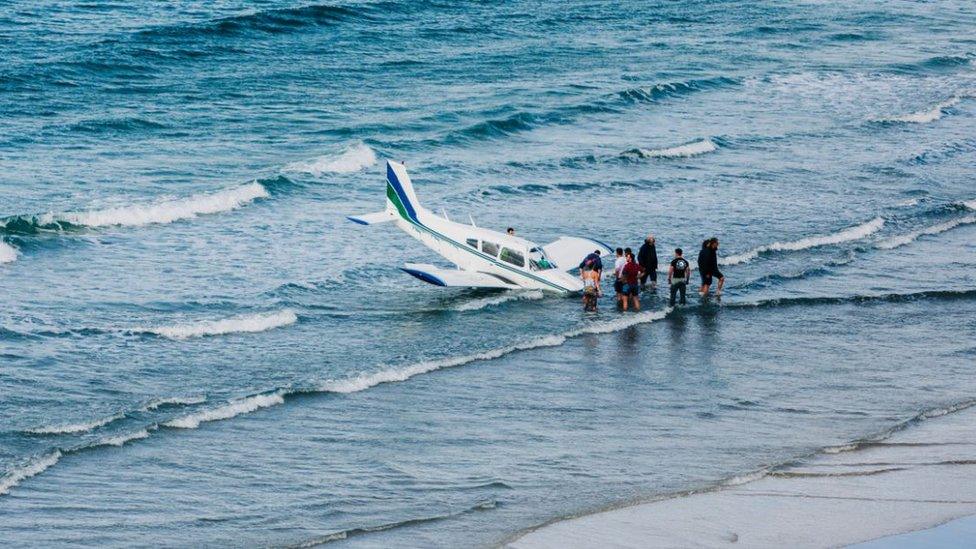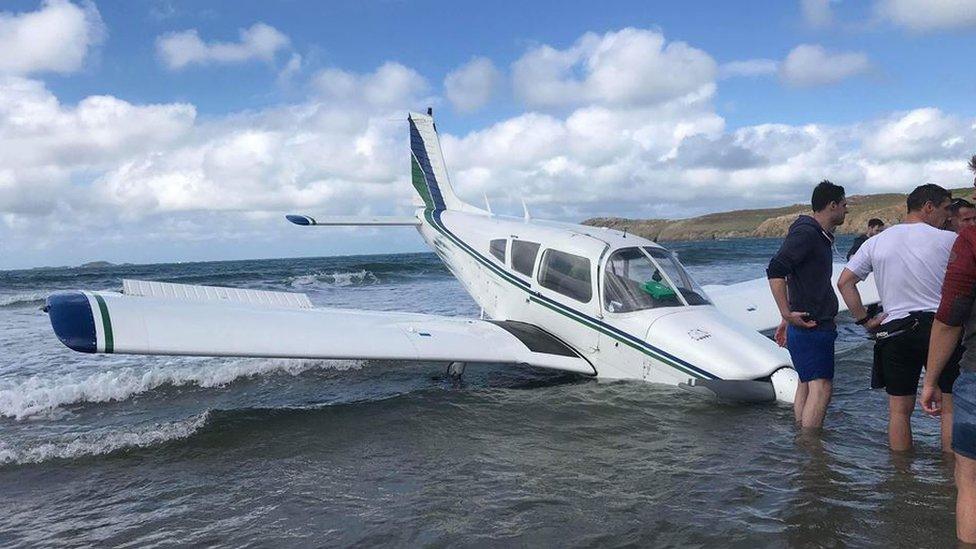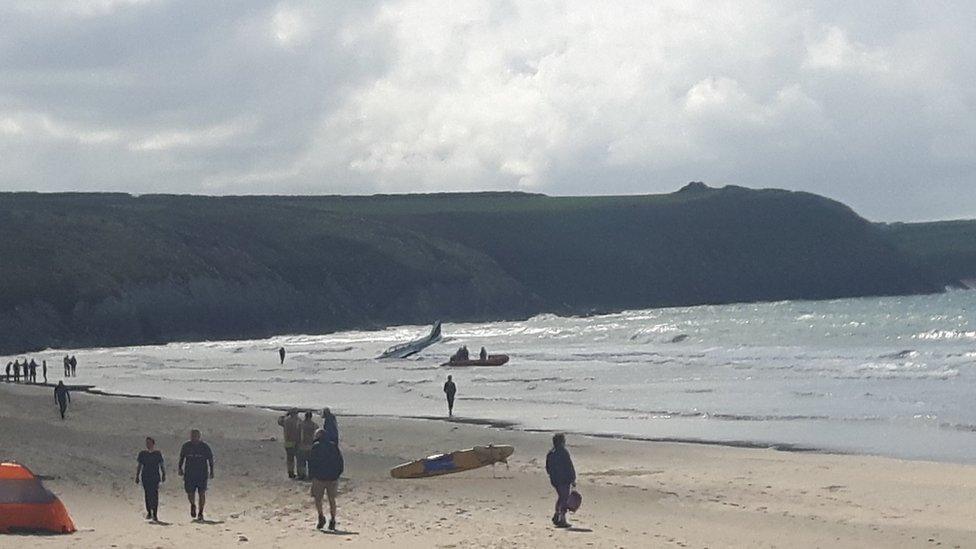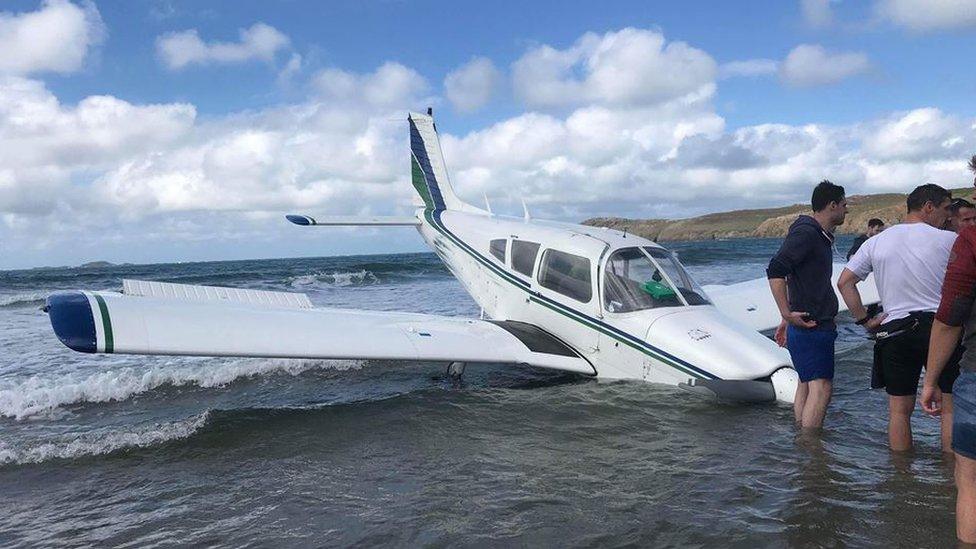Whitesands Bay sea crash plane pilot 'avoided beach'
- Published

The pilot was the only person onboard the plane at the time of the crash
A pilot landed his plane in the sea to avoid people on the beach, a crash investigation report has said.
The Piper PA-28-180 Cherokee suffered an engine fault on 4 September, causing a loss of power.
An Air Accidents Investigation Branch (AAIB) report said he planned to land on Whitesands Bay in St Davids, Pembrokeshire, but "due to the presence of people" he landed in the water.
The 53-year-old pilot suffered minor injuries in the landing.
A report by the AAIB said: "A subsequent examination of the engine did not conclusively determine the cause of the failure."

RNLI lifeguards were among the first on the scene after the plane landed in the water
The plane took off from Haverfordwest Airport, about 18 miles (29km) away, approximately 20 minutes before the crash landing.
Shortly after reaching cruising level, the pilot felt a vibration and the engine had stopped running smoothly.
Despite his efforts, he could not keep the aircraft level so focused on making a forced landing, the report said.
The light aircraft ended up nose-first in the water close to the shoreline at about 12:15, causing the nose gear to break off.

A digger was needed to get the plane off the beach
The pilot - who had 339 hours of flying experience at the time - was the only person onboard and was able to get out of the plane unaided, the report added.
An AAIB spokesman said: "During his recent biennial flight with an examiner, the pilot had received coaching on conducting forced landings.
"This emphasised 'flying the aircraft' to ensure a loss of control did not occur.
"This is good advice as a number of recent fatal accidents investigated by the AAIB have been due to a loss of control following a partial loss of engine power."
- Published4 September 2018
